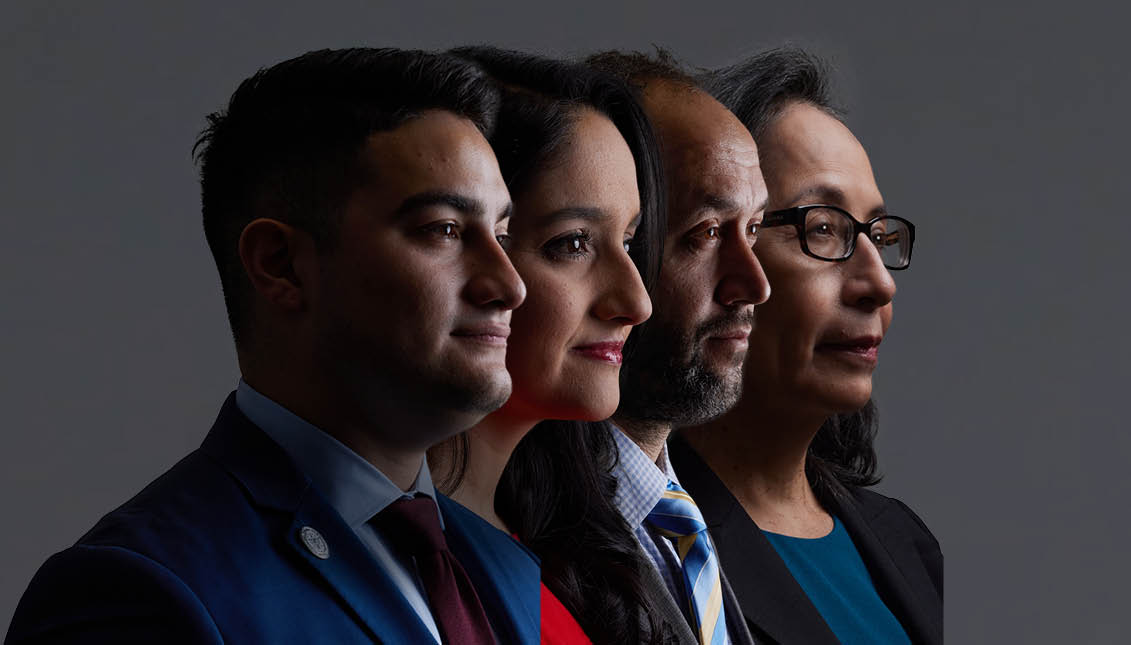
Building a Medical Pipeline
While these four diverse Latino medical professionals are all in different stages of their careers, each have the same mission — helping diverse communities.
The importance and value of the medical field can simply not be overstated.
The presence and cultural competence of medical professionals can literally be the difference between life and death.
No matter where we come from, what language we speak, or what religion we practice, our health is a critical component to our quality of life, and physicians play a crucial role in that.
Each January since 2019, AL DÍA has aimed to celebrate the medical field and put to the forefront some of the most accomplished and up-and-coming medical leaders the region has to offer with the annual AL DÍA Top Doctors Forum.
Dr. Hema Datwani, Dr. Christian Witzke, Juan Cerezo and Dr. Ana Maria Lopez represent four of 13 of this year’s honorees.
Each has a unique backstory and journey, but share the similar mission of helping the diverse and multicultural communities that make up our region.
As a teenager, Dr. Christian Witzke was always fascinated by the biology and physiology of the human body.
He had opportunities to see various surgeries being performed, and also got involved in outreach efforts, such as going into nursing homes and visiting the elderly.
“That inspired me to help others in the early life. With that and the interest in human physiology, and specially, anatomy, I made that decision to become a physician,” said Dr. Witzke.
Originally from Caracas, Venezuela, Dr. Witzke completed his medical school journey in his native country in 2000 before moving to Philadelphia two years later.
After completing his internal residency and fellowship, he took a two-year detour working in interventional cardiology in Boston, before returning to Philly in 2010.
“Having trained at Einstein, I really understood that there was a large Latino community, which I felt I identified with,” he said about his return to the city.
Shortly thereafter, Einstein began expanding its efforts to provide outreach to Latino patients with different heart and cardiovascular ailments.
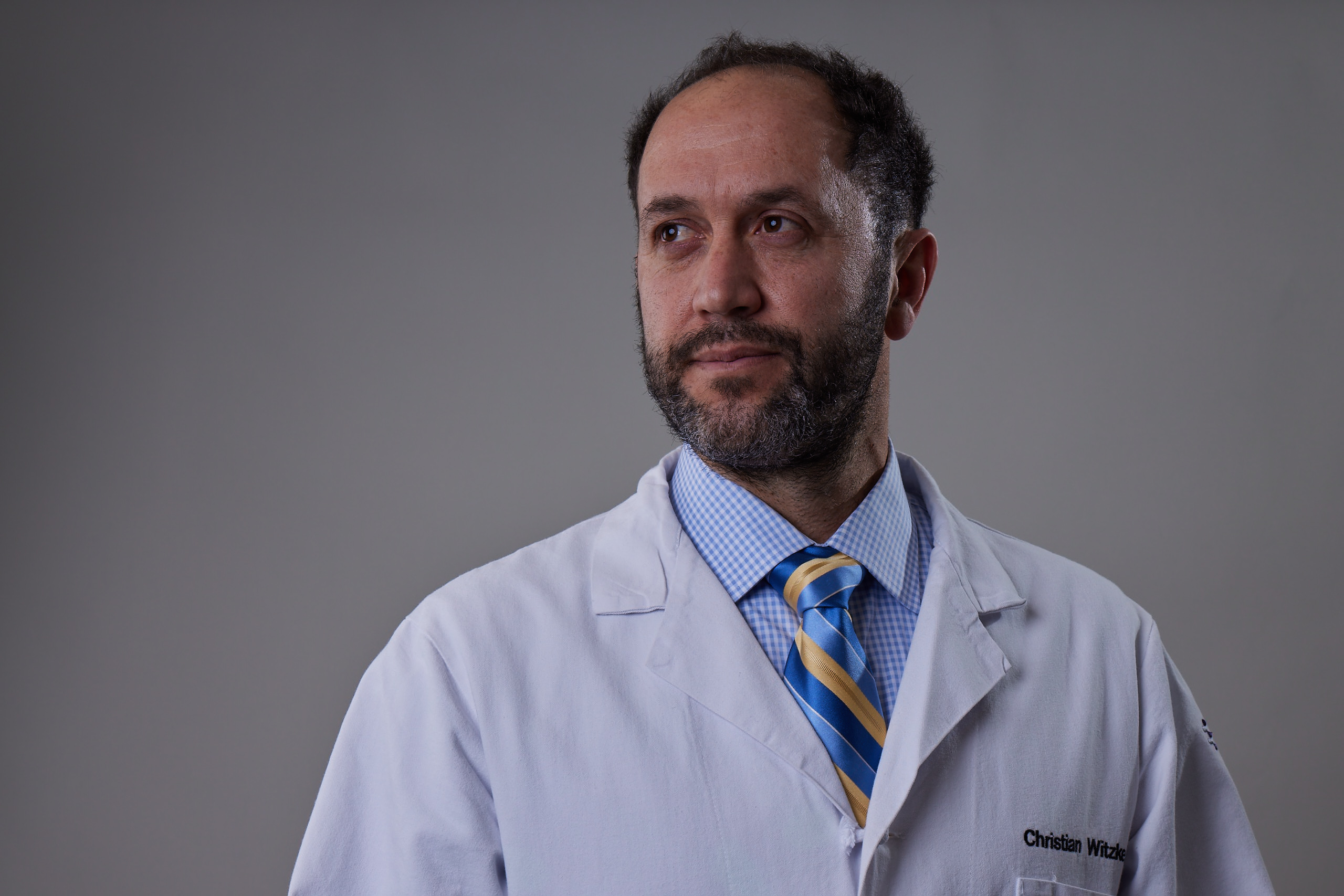
According to Dr. Witzke, currently a cardiology specialist at Einstein Healthcare Network, between 60% and 70% of his daily patients are of Latino descent.
“It’s been very gratifying because the patients are really not only happy because they might expect to see a non-Spanish speaking person when they walk in. But when I say ‘hello’ to them in Spanish, they immediately crack a smile and they just feel more comfortable,” he said.
While he admits being in the medical field can be difficult, “I have no regrets,” said Dr. Witzke. “I think I would do it 100 times if I had to.”
Given her background as half Indian and half Venezuelan and the fact that she grew up in Panama, working with the Latin American community has always been an important part of Dr. Hema Datwani’s identity.
Her decision to enter into the medical field came later.
While studying at the University of Miami, she decided to pursue a degree in public health, before later earning a master’s at Emory University.
“I went to the University of Michigan in Ann Arbor for medical school, and there my interests were sparked by obstetrics and gynecology,” said Dr. Datwani.
While at Michigan, she found a large number of immigrants from Latin America.
As a native Spanish speaker, Dr. Datwani saw firsthand just how important the ability to communicate effectively with patients is.
“Seeing the impact I could have on their care was really essential to me, and integral in my deciding to continue in obstetrics and gynecology, and wanting to ultimately work with a lot of our community,” she added.
That’s exactly the work she does now at Einstein, as an OB/GYN generalist.
“I take care of women all throughout their reproductive lives,” said Dr. Datwani. “From teenagers starting on their first birth controls and having questions about sexual health, all the way up until women of menopausal age and helping manage some of their menopausal needs, as well.”
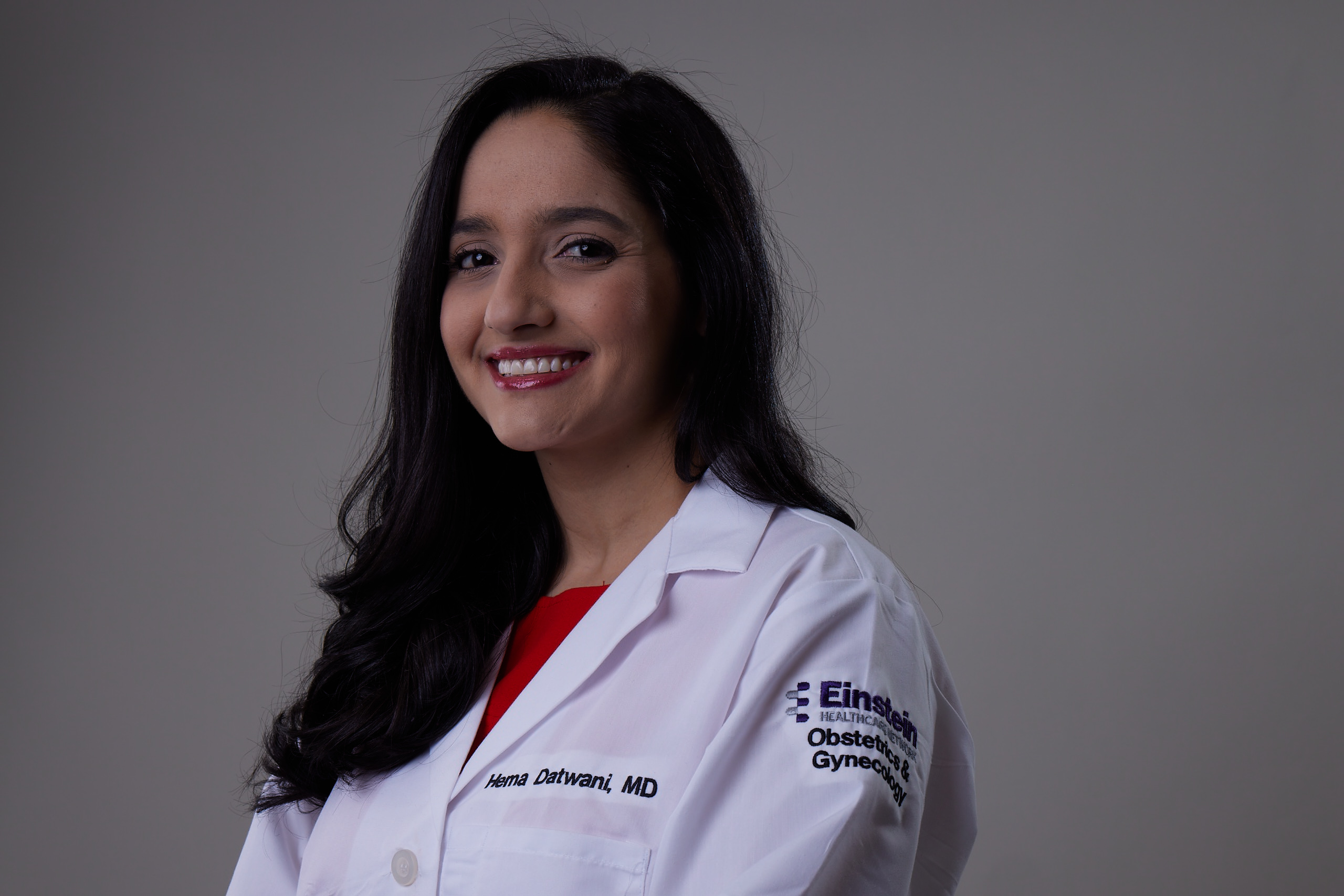
Within her clinics across the Northeast, about 50% of her patients are Spanish speaking or have limited English proficiency.
Being a bilingual medical professional allows Dr. Datwani to provide a more holistic approach to care. She’s personally seen the benefits that diversity and bilingualism in the field has through the confidence many of her patients have in her, bringing their daughters, aunts, nieces into her office.
“We’re able to kind of grow our community that way, and provide care in a more culturally appropriate way,” she said.
“The only way to get patients in and facilitate access to care is by having the diverse faces that they can identify with and that they feel comfortable communicating with.”
From spending the earlier part of his life in Colombia, to moving to North Jersey at the age of seven, Juan Cerezo has always been surrounded by diverse, mostly Hispanic communities.
The child of two parents who didn’t speak English and without a formal high school or college education, he grew up with a very humble background.
“Fortunately, where we lived, everyone else was Spanish-speaking immigrants, so [my parents] were able to at least find a job that can suit them,” he said.
Originally wanting to become a chef, Cerezo was accepted into Rutgers University through a pipeline program, where he majored in microbiology.
“It was because of that program that I really found medicine and science,” said Cerezo.
At Rutgers, he was able to find a physician, who served as a valuable mentor. While serving as a teaching assistant, Cerezo also developed a passion for teaching and working with underserved communities.
This motivated him to attend medical school, where he is currently a fourth-year medical student at Temple University Lewis Katz School of Medicine.
Cerezo is very involved with the Latino Medical School Association (LMSA) at Temple, an endeavor he started because he saw a need within the school.
The chapter was very small, and going to the regional and national conferences inspired him to make the effort to take Temple’s chapter to the next level.
He then ran for the mentorship chair position, where he mentored undergraduate students applying for higher education opportunities and MCAT studying, and is currently the director for the Northeast Region of the organization.
RELATED CONTENT
“Now Temple’s chapter is one of the biggest chapters in the country,” said Cerezo. “We have over 50 Hispanic students involved, and I think it’s important for the community because it brings us closer.”
“People don’t want to go to where there’s nobody that looks like them. And a school like Temple, located in North Philadelphia with such a diverse community and underserved population, we want people to want to go and work there,” he added.
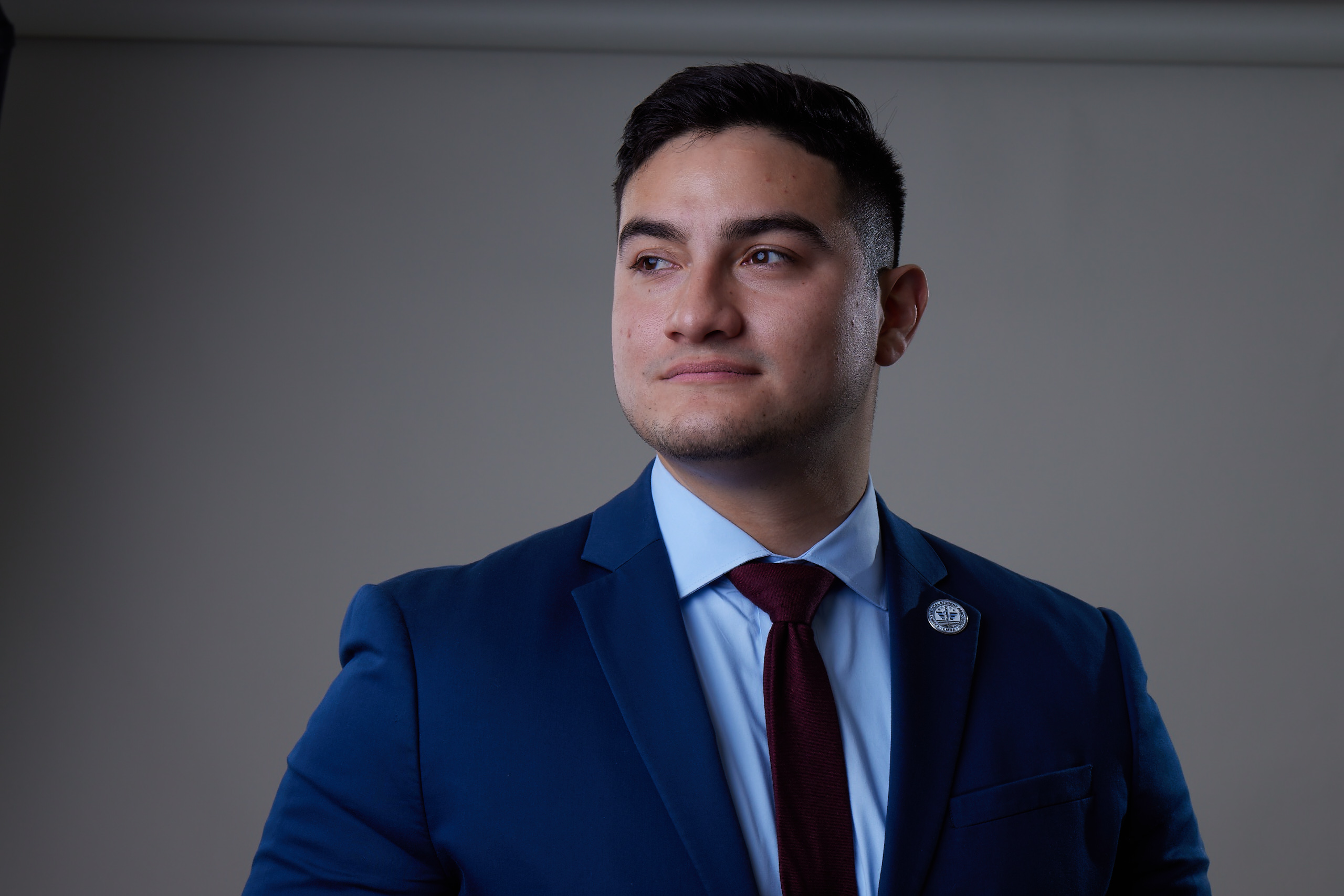
As Cerezo continues to decide what his next steps will be, leadership and mentorship within the medical field remains his primary goals.
“I strive to be a leader in my community and a voice for people from underserved communities, but especially communities of Hispanic and Latino groups,” he said.
“Unfortunately, a lot of minorities that end up becoming doctors, we’re very few in numbers in academia. That’s important to have because that’s how we get better recruitment and teach our colleagues about the health problems that our communities have.”
For Dr. Ana Maria Lopez, a career in the medical field seemed almost destined.
Born in La Paz, Bolivia, both her parents were pathologists who moved to the United States for their residency and training.
“Early on, I knew I wanted to be a physician, and I really wanted to be involved in healing,” said Dr. Lopez, also noting that she knew she wanted to be a different kind of physician than her parents.
Her goal was to enter into an area where she could constantly learn, and also be able to closely interact with people.
With that, she decided to choose oncology.
“I really liked the opportunity to bond with the patient,” she said. “There’s the emotional intensity and the intellectual intensity, and I felt with a patient who has a diagnosis of cancer, even if you can’t cure them, you can make a difference.”
In addition to her career as a medical oncologist, Dr. Lopez’s work has also been in academic medicine.
Her involvement has led her to various key leadership roles, including president of the American College of Physicians, and currently, a professor and vice chair of medical oncology at Kimmel Cancer Center.
“Patient care, education, research, engaging with the community, all of those are healing opportunities,” she said. “They’re all opportunities to help things be better.”
As a leader in the field, Dr. Lopez credits listening as among the most important qualities to have.
“Leadership is really about the people you are leading. So you have to really be on time with where they are and what they’re thinking,” she added.
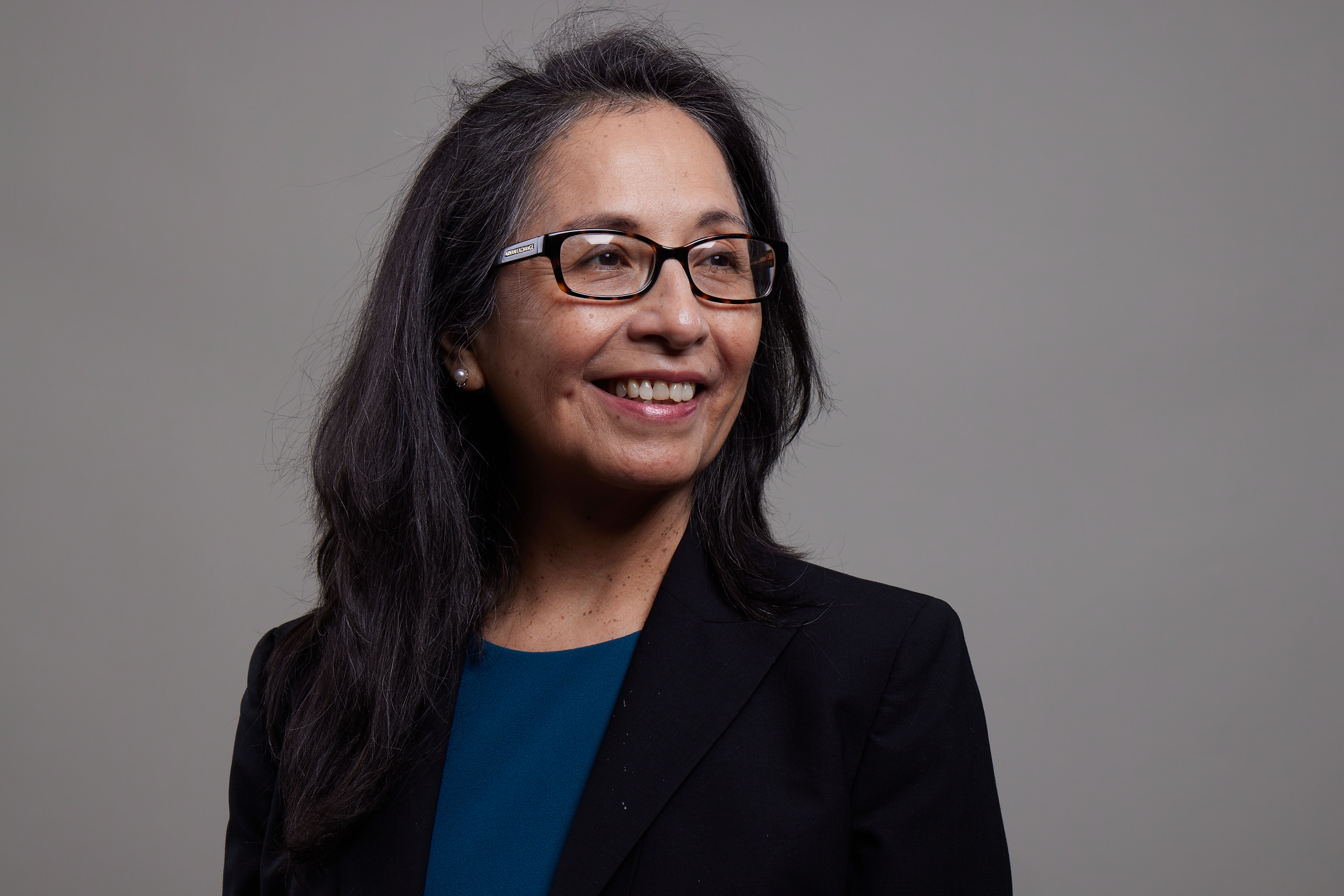
Dr. Lopez has also been a longtime advocate for health equity.
Among the many things that the pandemic has taught us are just how many factors impact health, and how health outcomes often different from patient to patient.
“Whatever I can do in that one-on-one, whatever we can do as a health system and as a profession, is really important because we need people to be able to achieve the best health that they can,” said Dr. Lopez.
A medical educator at heart, Dr. Lopez often tells her students success in the medical field starts at a young age, with the belief that you can do it, and the desire to help and lift others.
“Sí, se puede,” she said. “At the same time, things take work. It’s so amazing to learn, it’s so amazing to help people and work together to find solutions. All of those things are so powerful.”









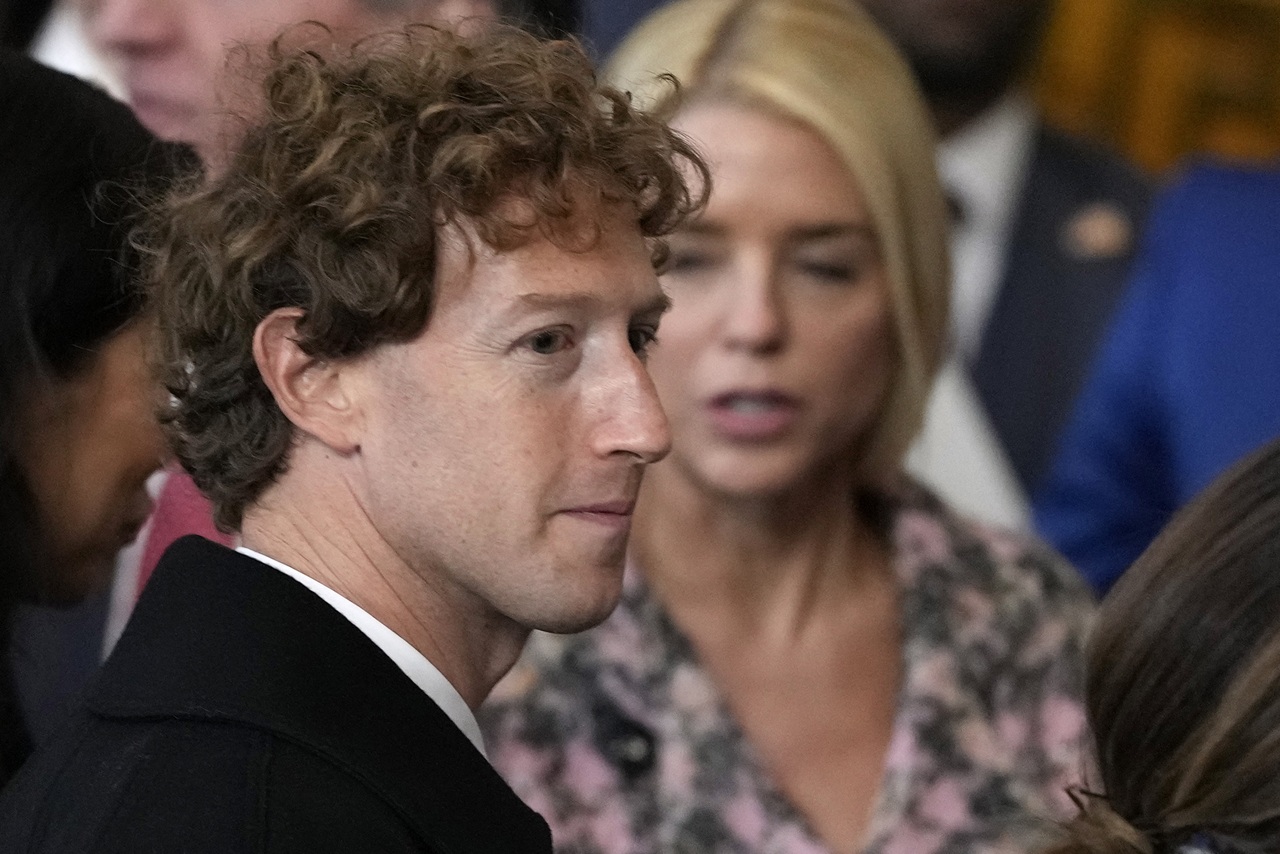

LEAVE A COMMENT: